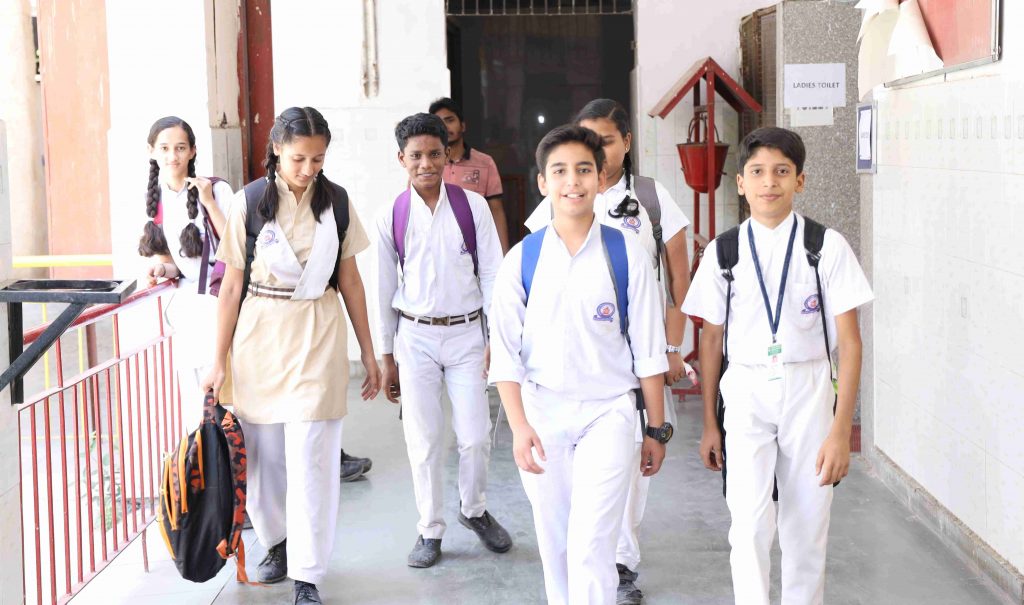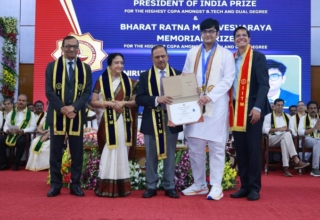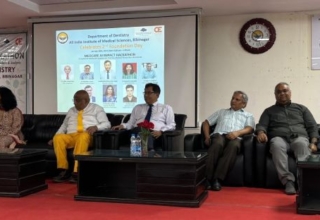

The talk and seeding of a New Education Policy (NEP) took birth with the release of BJP election manifesto in 2014. The mammoth exercise that has gone into it thus far began a year after. In January 2015, BJP-led NDA government honored this promise and announced NEP formulation. It invigorated the discussion and debate over shortcomings in education systems and how quality education can be brought about and scaled up, etc. However, one thing was very clear from the beginning that ideological masters of BJP, in wait for this opportunity for long, to further their agenda of incorporating their brand of rightwing nationalism into school curriculum and reaching out to young minds through realignment of policies and textbooks, will call shots in the eventual drafting. A reason, why many domain experts, practitioners and expert bodies were meticulously kept out of consultation process, which the ministry of HRD claims was extensive and from grassroots level upward.
In a high drama, two high powered committees oversaw this work, the first being led by former cabinet secretary, TSR Subramanian, and the second and final one by former ISRO chief, Dr Krishnaswamy Kasturirangan. TSR Subramanian committee submitted its report to ministry of HRD in June 2016 but somehow that episode caused more embarrassment to all sides than acceptance of its report and paved way for a new committee to take over. Finally, the 484-page draft document was completed in December 2018, but not made public before Lok Sabha elections were announced for whatever reasons?
Finally, the draft NEP 19 was revealed on June 1 and it gave a lot of people a ‘wow’ moment. It seemed exhaustive and comprehensive and made an impressive reading. People who had been demanding extension of Right to Education to 3-6 and 14-18 years, were in for a pleasant surprise as it is indeed ‘granted’ in the draft. Likewise , higher education agenda has been articulated with a lot of deftness and optimism. Creation of a national education commission, a demand for decades has also been accepted through in a different avatar. So, overall an euphoria around draft NEP in the country unfolded this June.
However, as knowledgeable people started reading between the lines, a number of inconsistencies, wrong emphasis and invisible restructuring schemes are being unearthed. Education, which is more of a liberating force, a means of civilization advancement and transfer of knowledge from older generation to new one and synthesis of new knowledge, is being confined to ‘skilling’ algorithms and technology use promotion. The inequalities that education is supposed to end with universal access, standardization and provisioning is not fully understood by drafters and going by them, improving conditions for learning is not important, only outcomes are. That’s how it allows all kind of schools including home schooling.
While constitution of a Rashtriya Shiksha Ayog (RSA) or National Education Commission, under the chairmanship of Prime Minister on the lines of NITI Ayog, gives political legitimacy and easy access to power corridors, but fear is, this centralization will handover national education agenda into hands of favorite bureaucrats or members. Again, a lot of good hard work in creating subsystems and placing of state mechanism over last so many years has been disregarded, it seems and everything present de novo. For instance, the country already has a robust ICT in education policy but the section on education technology seems oblivious to this fact. Again, unlike 1986 policy, science and mathematics education doesn’t find a place and emphasis.
Imagine a new national policy on education coming soon after 30 years and yet the outstanding and irking issues facing the education instead of being addressed and sorted out, continuing to plague it with added weight and more vagueness. Without looking at the root causes of what is holding back our education within the current system and into the painstaking work and synergies, arrangements and Right to Education implementation through a thorough review, 484-page draft on National Policy on Education released on June 1 and will form basis for the new policy announcement, as per experts opinion is nothing short of restructuring school education dangerously. The historic and landmark Right to Education Act, which guarantees equal education to all and provides a framework for school education, is likely to be diluted and made ineffective.
As mentioned in the draft, extension of Right to Education from 3-18 years has enthused many people and particularly welcomed in light of the likely formalization and regulating of preschooling and early education in the country, yet financial experts and those who have watched implementation of 6-14 years Right o Education aren’t sure about this happening. No proper estimates have done arrived either on unit cost per child for children population or component wise as done earlier. So, in absence of a scientific estimate and financial commitments in terms of GDP, this extension will meet the same fate as the present RtE implementation.
The neglect of government schools and teacher education coupled with bringing para teachers back in the garb of national tutors program and allowing all type of schools to mushroom, is likely to hit universalization of equal education and dilution of norms, standards and regulations. The invisible agenda of restructuring of school education with intent of starting vocational courses at class XI onwards and centralization contained in draft NEP is being debated in several discussions around it. So, while government may like to expedite the policy announcement, it still remains to be seen, how far the objections raised and suggestions made will fine-tune the proposed policy to give India an education identity and frameworks.
There are several contradictions and inappropriate expressions. On the whole, the draft NEP, does serve an important purpose of a focused discussion and debate and it is in interest of country for the government to extend the date of submission of suggestions and comments, listen to critique and allow corrections. If country waited for last four years, it could wait for another six months for a policy announcement that will truly reflect national aspirations, needs and a roadmap that education needs to fulfill in next 20 years or so.










